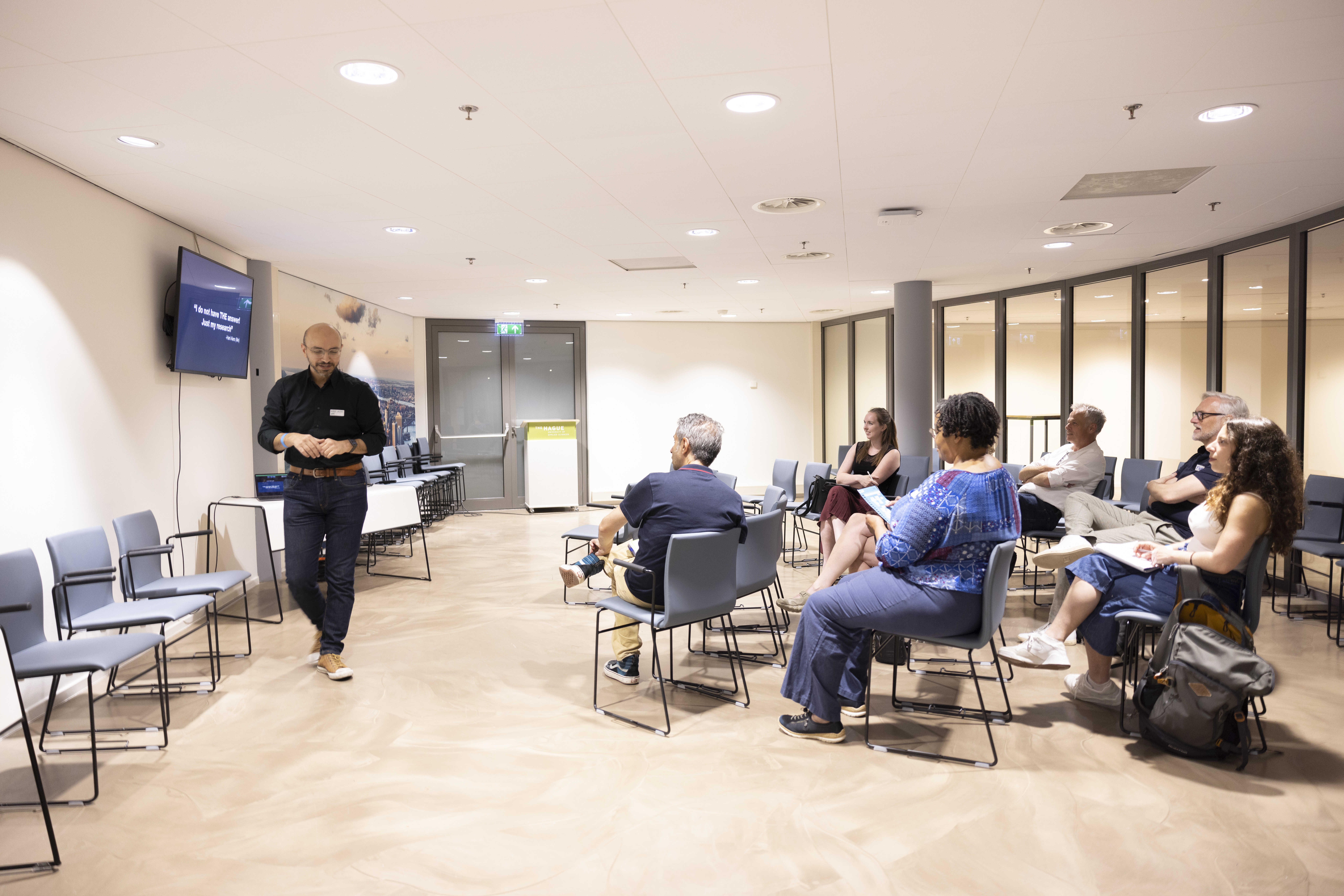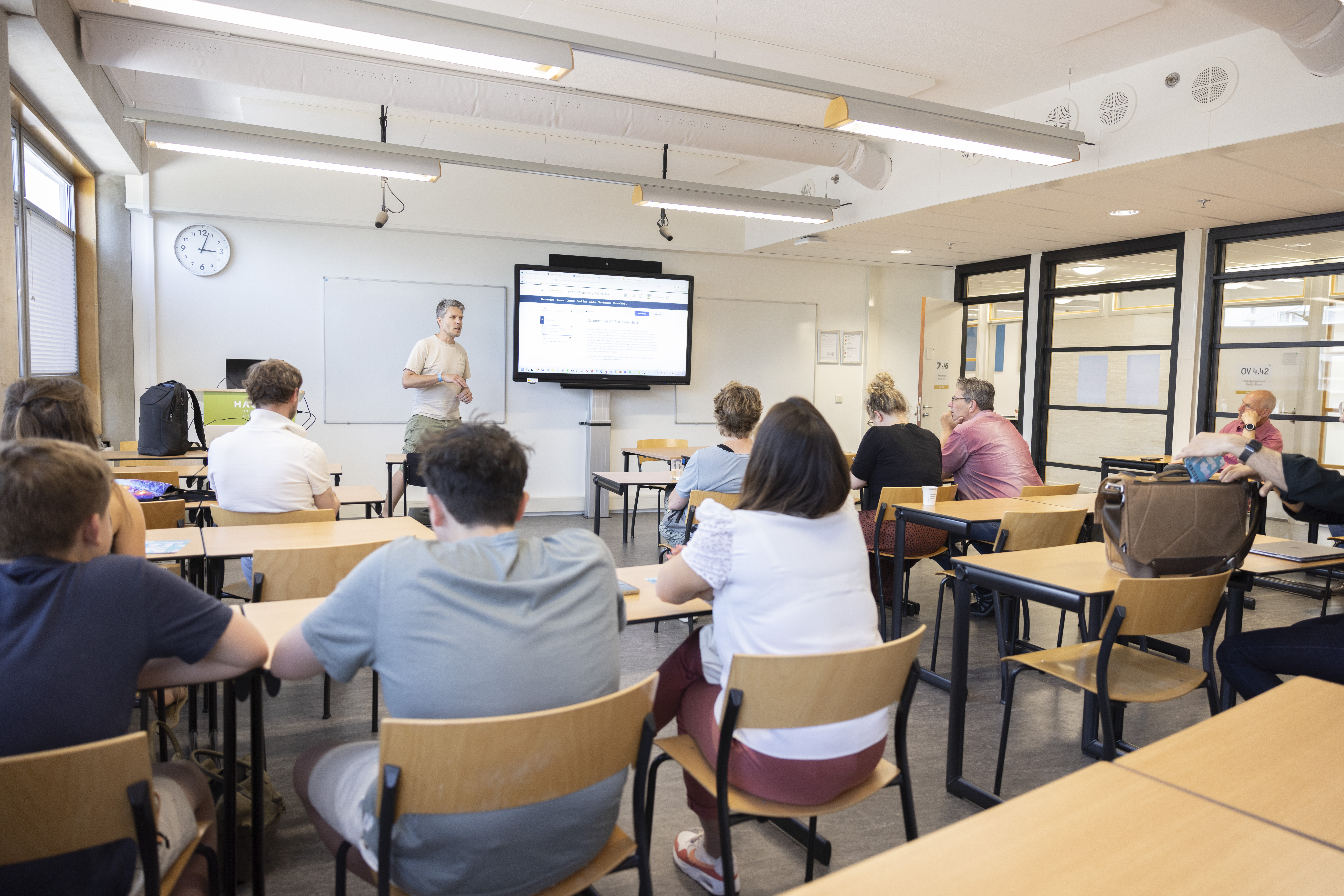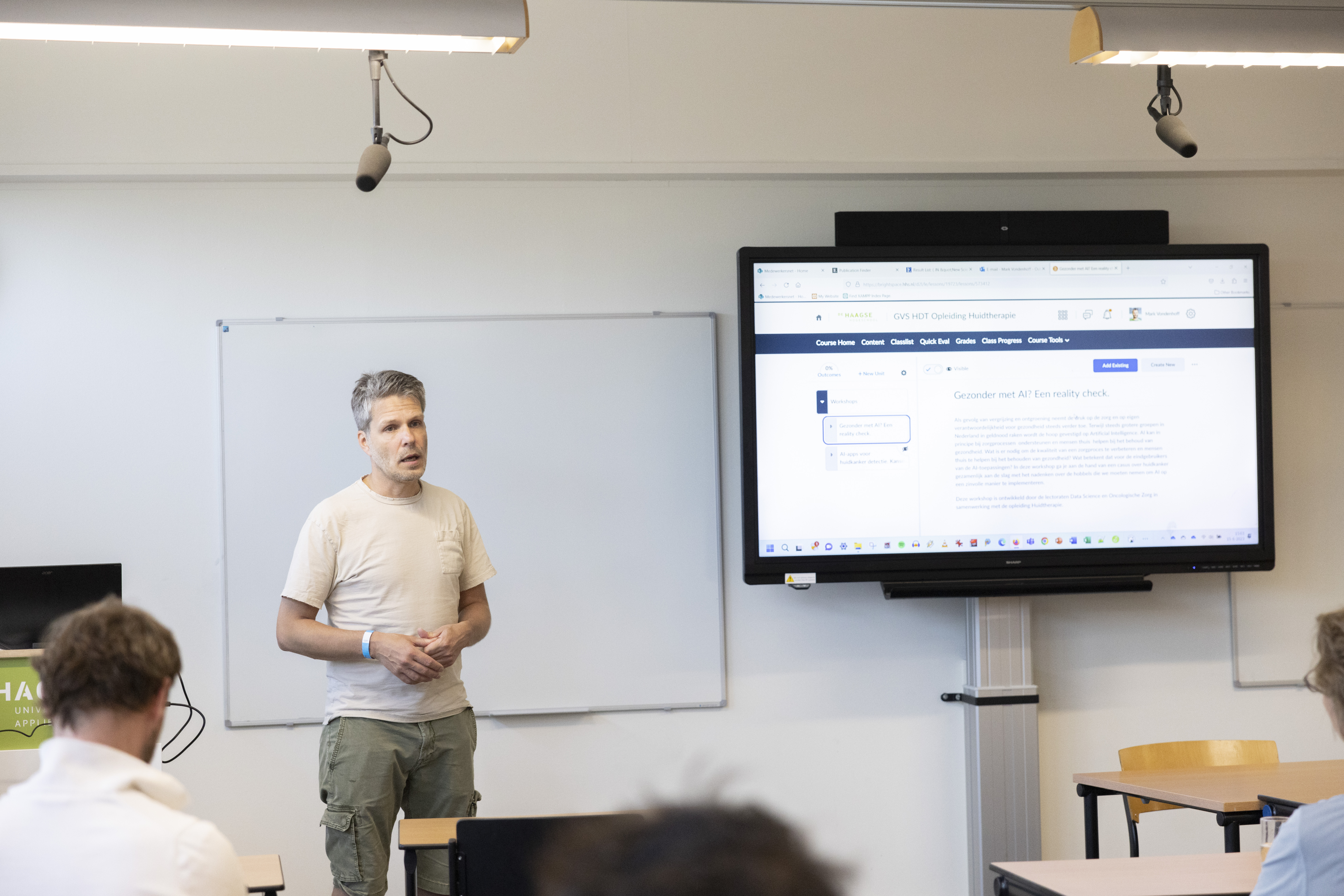
1. AI in Education: A Personalized Approach
The Data Science research group of The Hague University participated in the AI Fest event, a focal point for advanced research and applications in Artificial Intelligence. Two different research lines were showcased in the event.
Dr. Hani Al-Ers led an in-depth workshop focused on the application of Artificial Intelligence in the educational sector. The session commenced with a comprehensive review of existing literature that examines the use of AI-powered technologies in pedagogical settings. The workshop then transitioned into discussing the emerging landscape of Large Language Models (LLMs), including chat-based technologies like GPT-4.
Dr. Al-Ers presented a compelling research project where Chat GPT was deployed to grade open-question exams for 105 students within just one hour, offering a high level of accuracy comparable to human graders. Another study highlighted was the investigation into Chat GPT’s capability to teach geometry to middle school students, where the results showed learning outcomes that were comparable to those achieved through human instruction. These findings open up new vistas for creating highly personalized educational tools that can adapt to the unique learning styles and needs of individual students.
2. AI in Healthcare: Addressing Societal Challenges
Dr. Mark Vondenhoff’s workshop took a comprehensive look at the increasingly significant role of AI in healthcare, especially in the context of societal shifts such as an aging population and financial challenges. Focused on a case study concerning skin cancer, the workshop delved into the potential benefits and risks of AI in healthcare processes and self-care.
Attendees were encouraged to think critically about the challenges that must be overcome to implement AI meaningfully. Dr. Vondenhoff emphasized the need for improved user education and robust regulatory frameworks to ensure that AI-driven healthcare solutions are both effective and safe.


Collaborative Opportunities
Both workshops garnered significant attention and stimulated thoughtful conversations among participants, indicating a high level of interest in the broader research community. We see great potential for interdisciplinary collaborations, particularly with institutions keen on applying AI in sectors such as healthcare, education, and urban development.
We invite interested parties to reach out for potential collaboration, as we believe that synergy across different fields will be instrumental in navigating the complexities and unlocking the immense potential of Artificial Intelligence.

